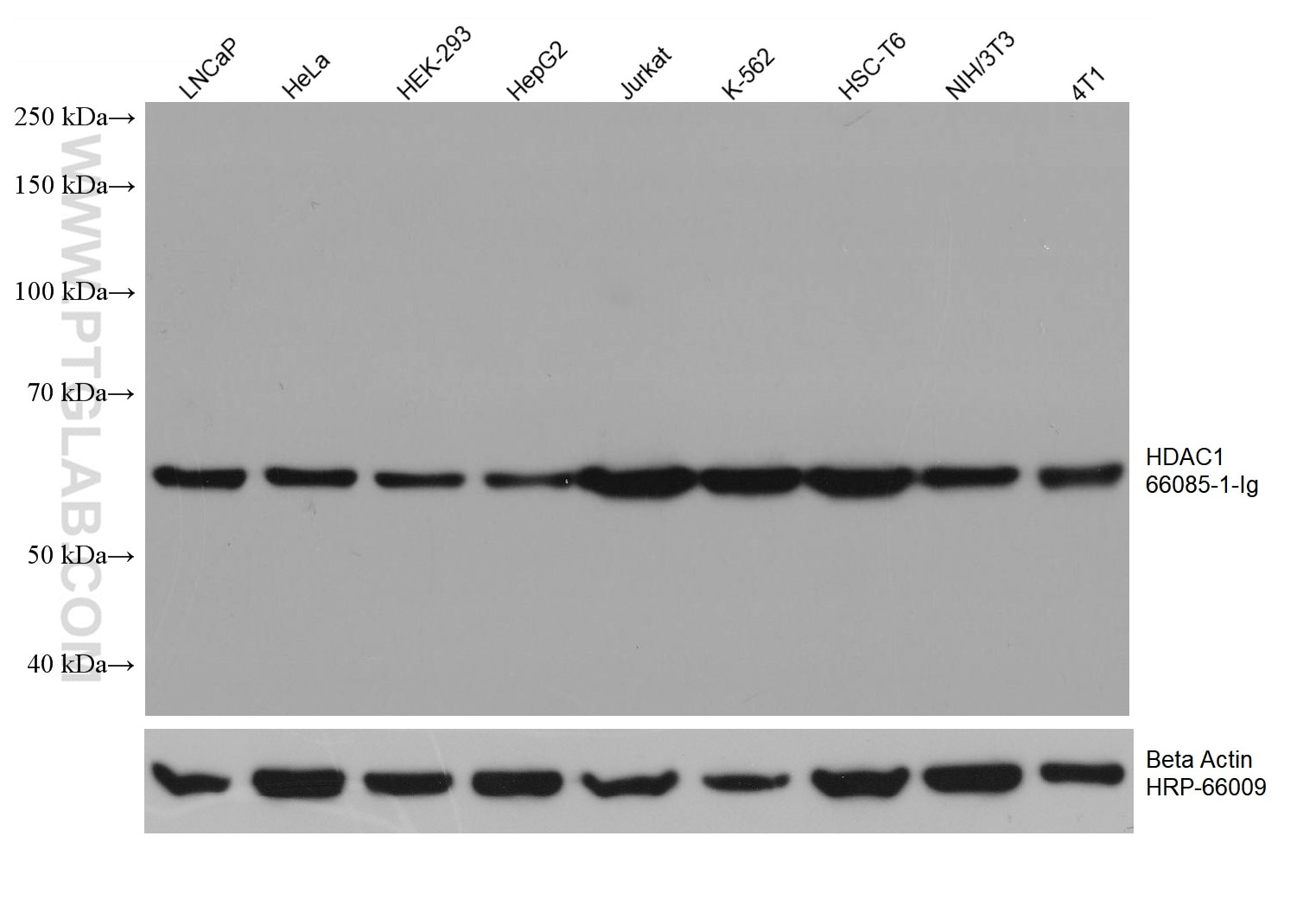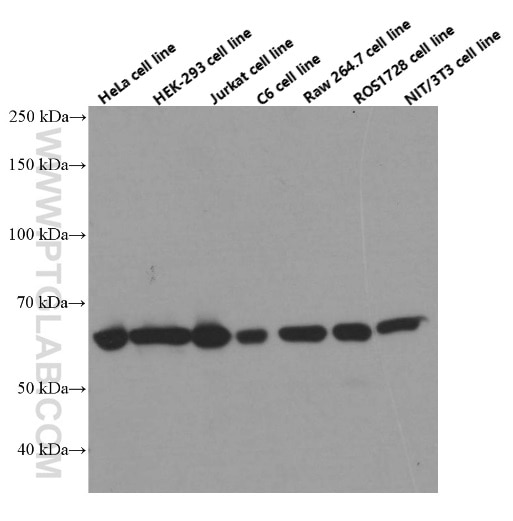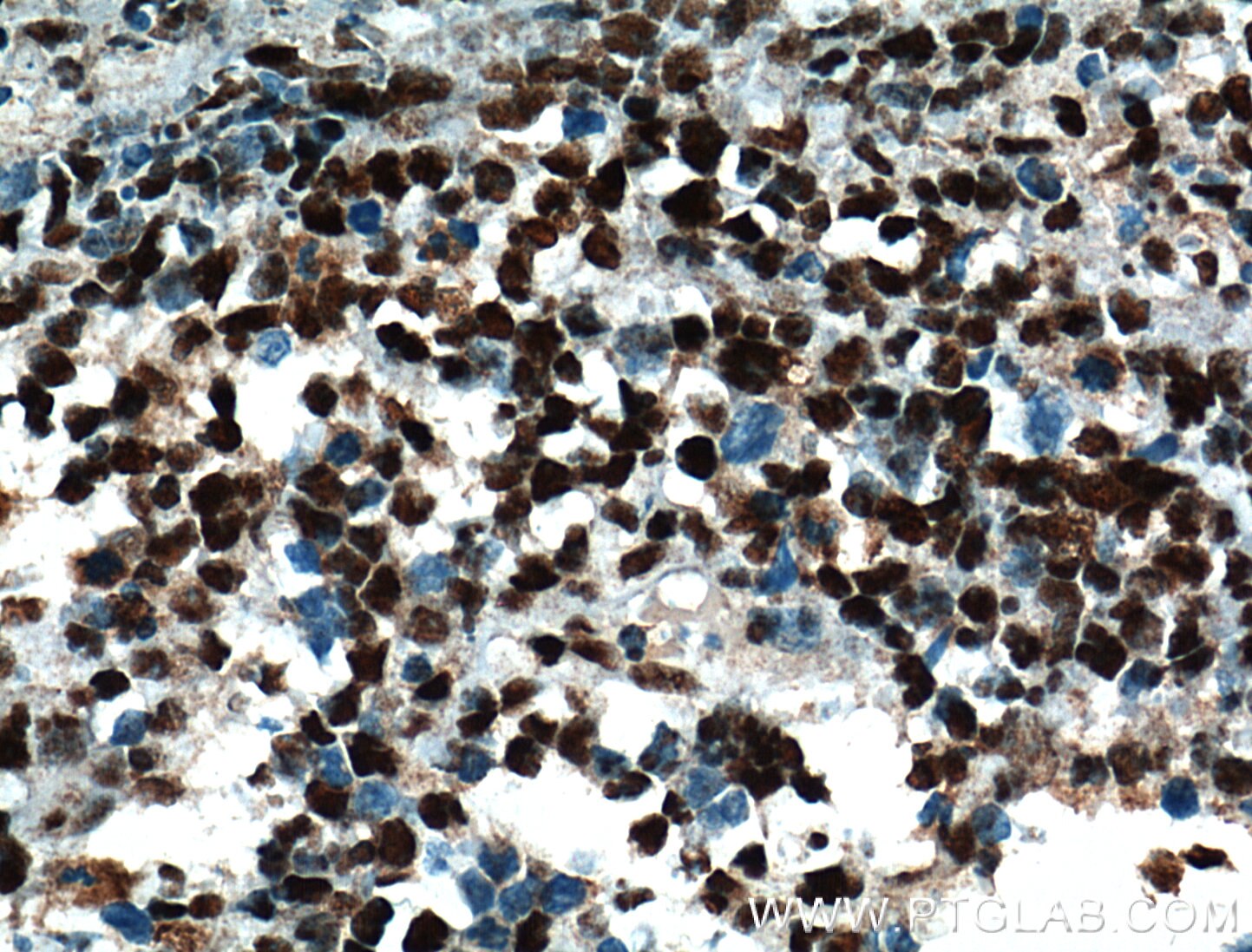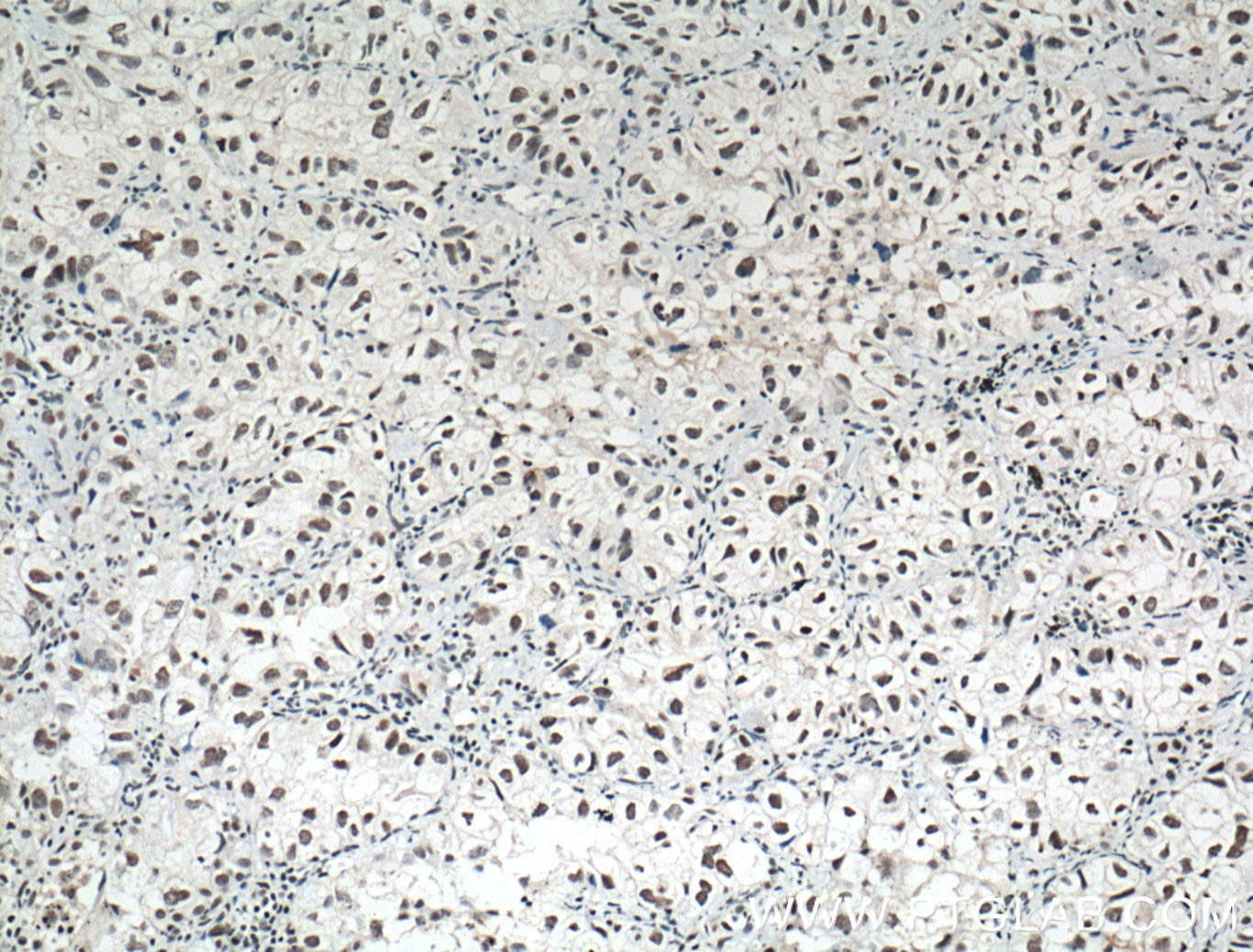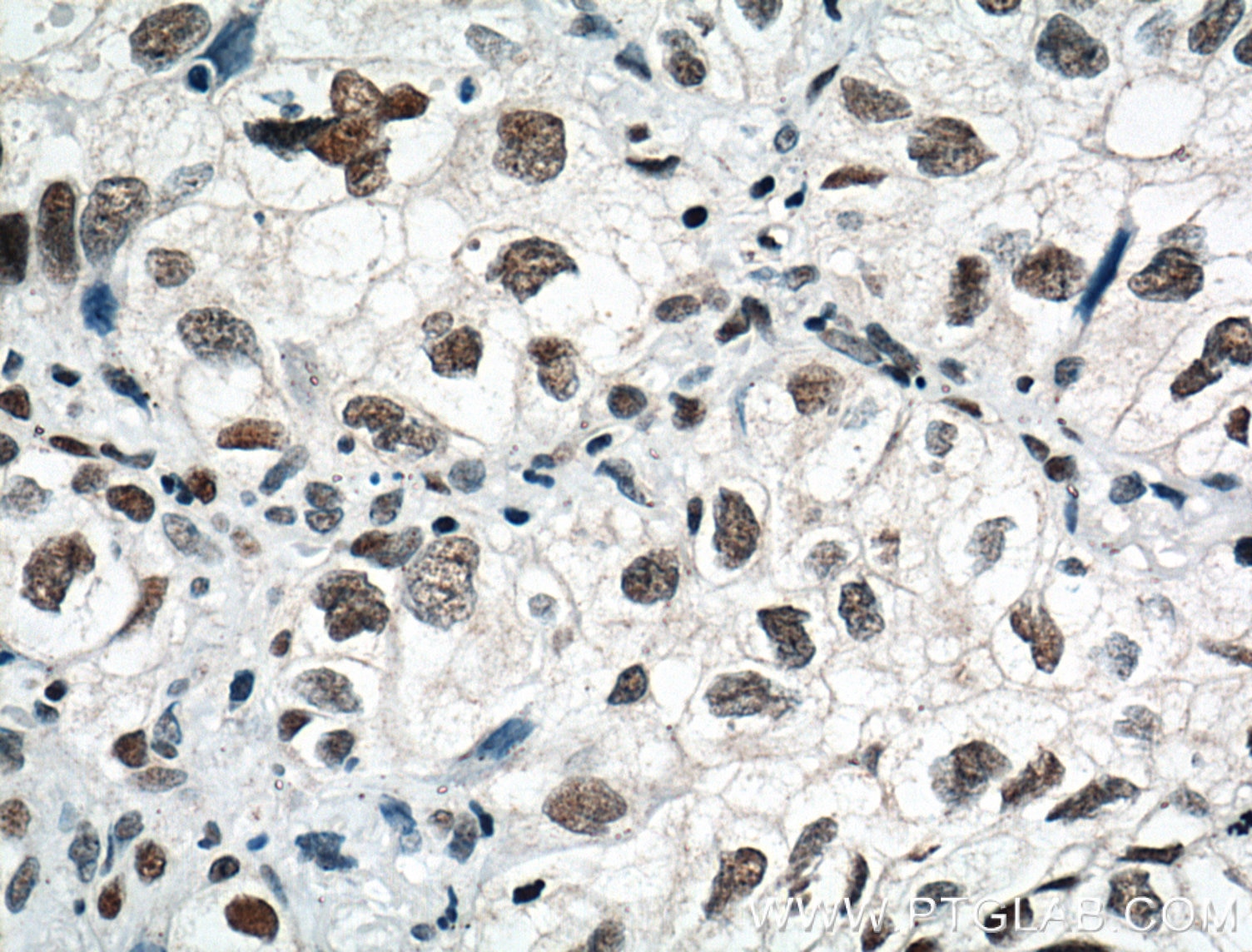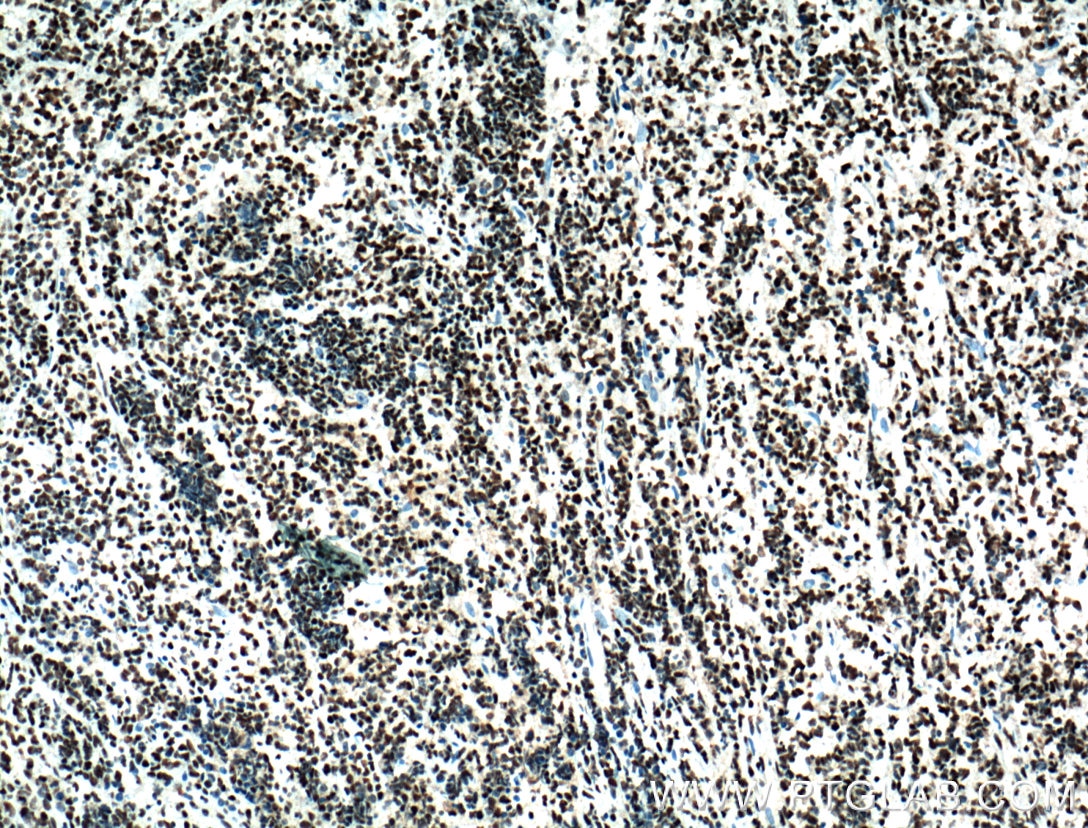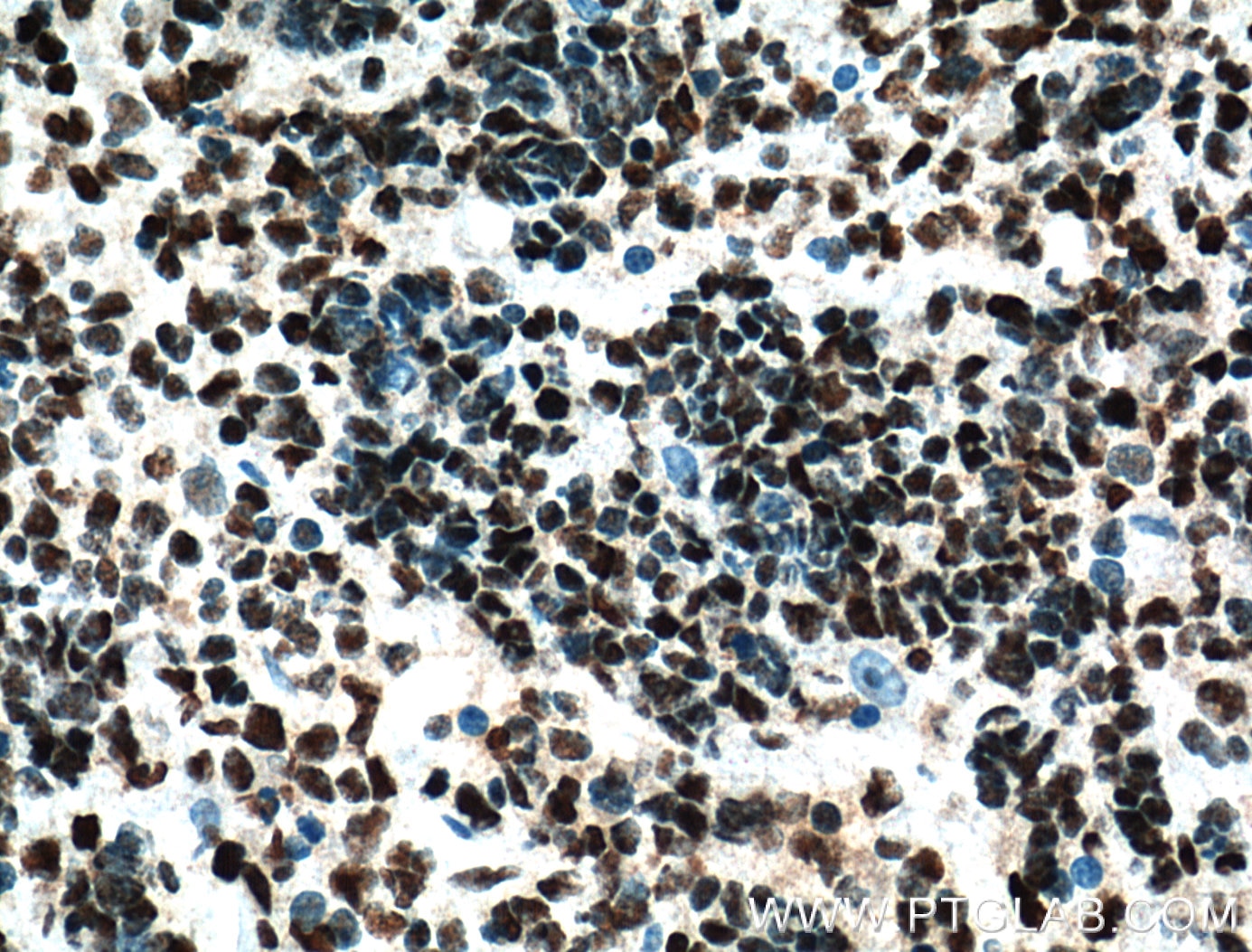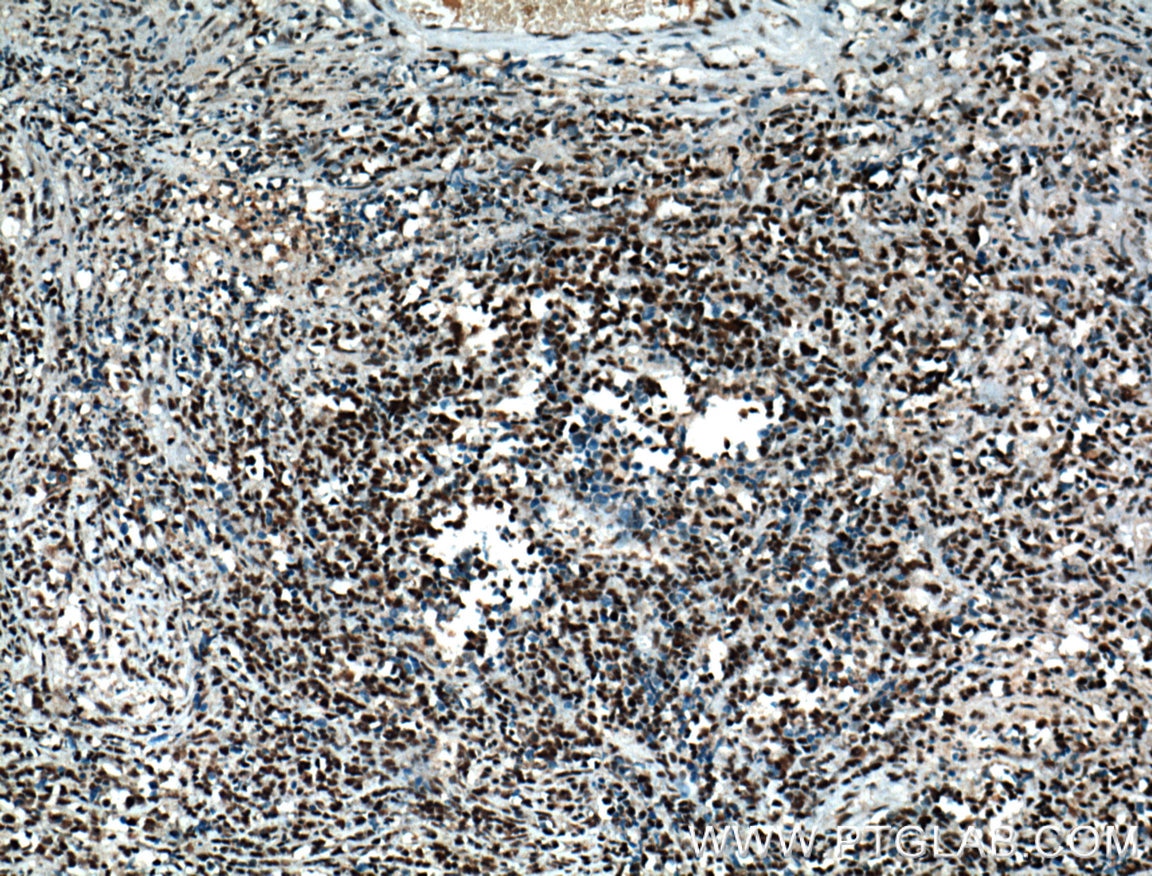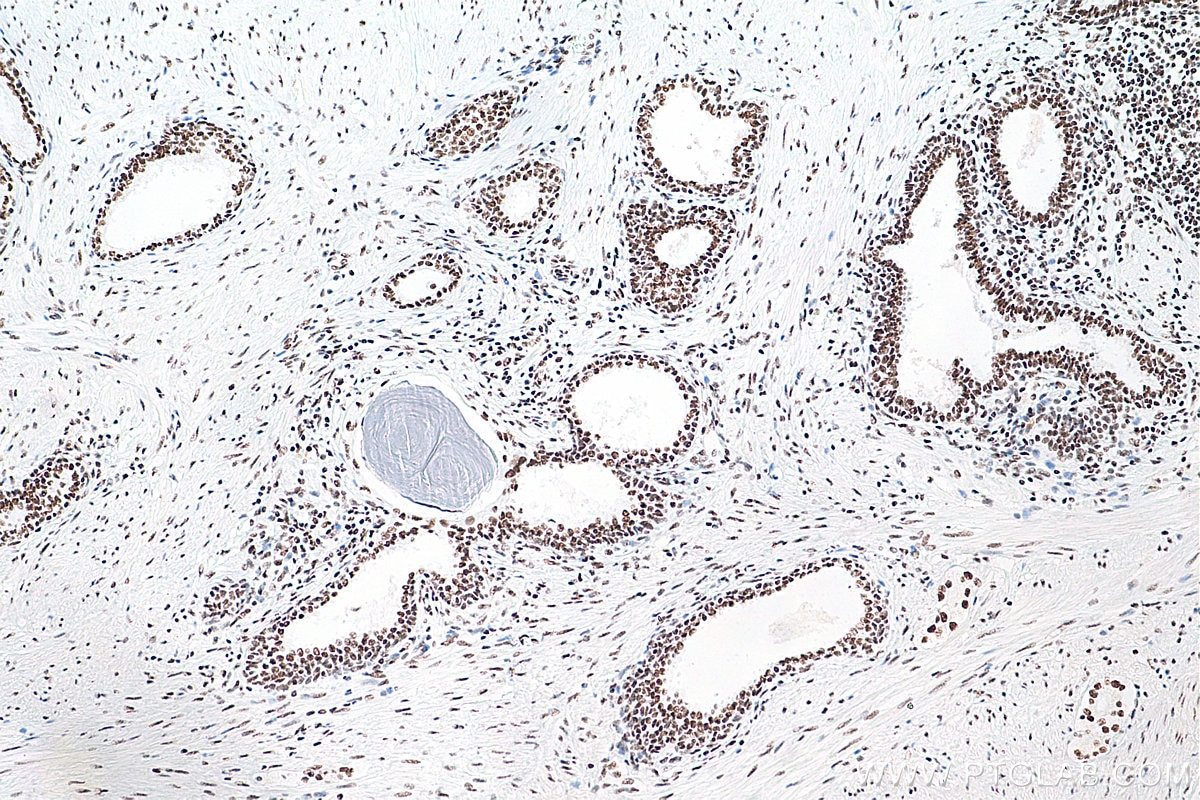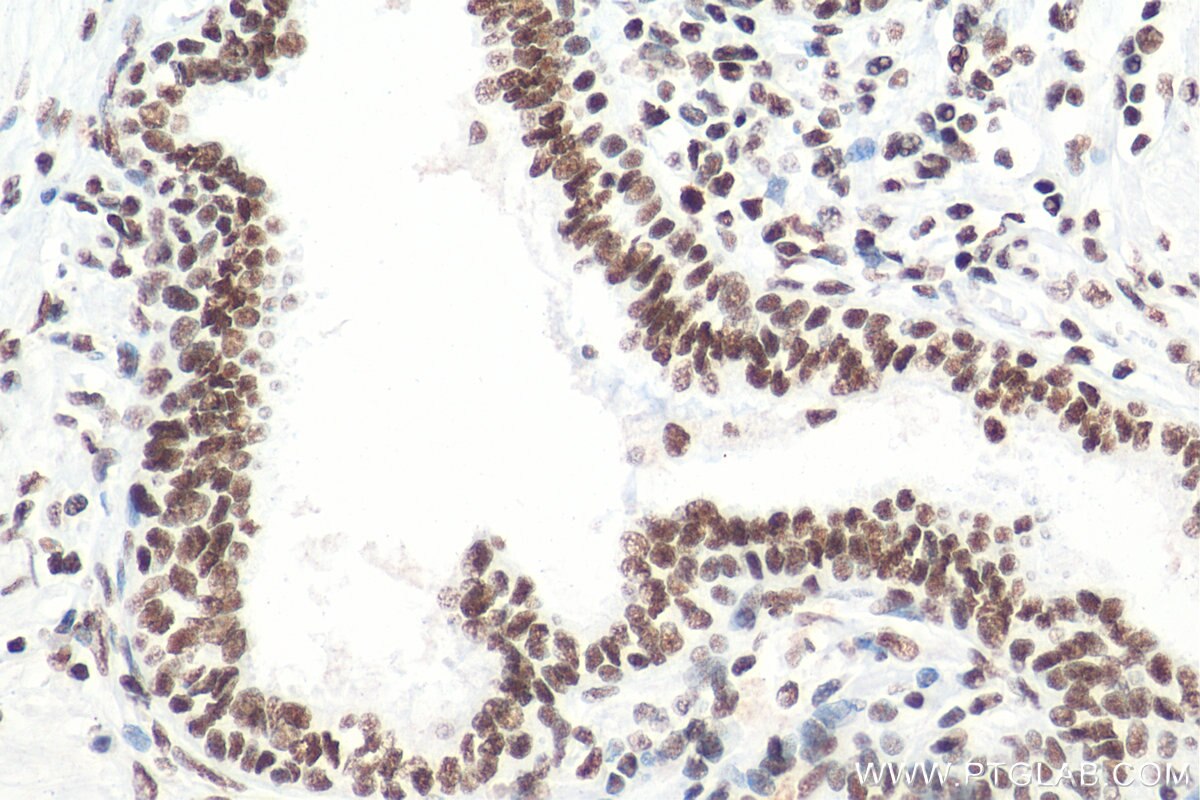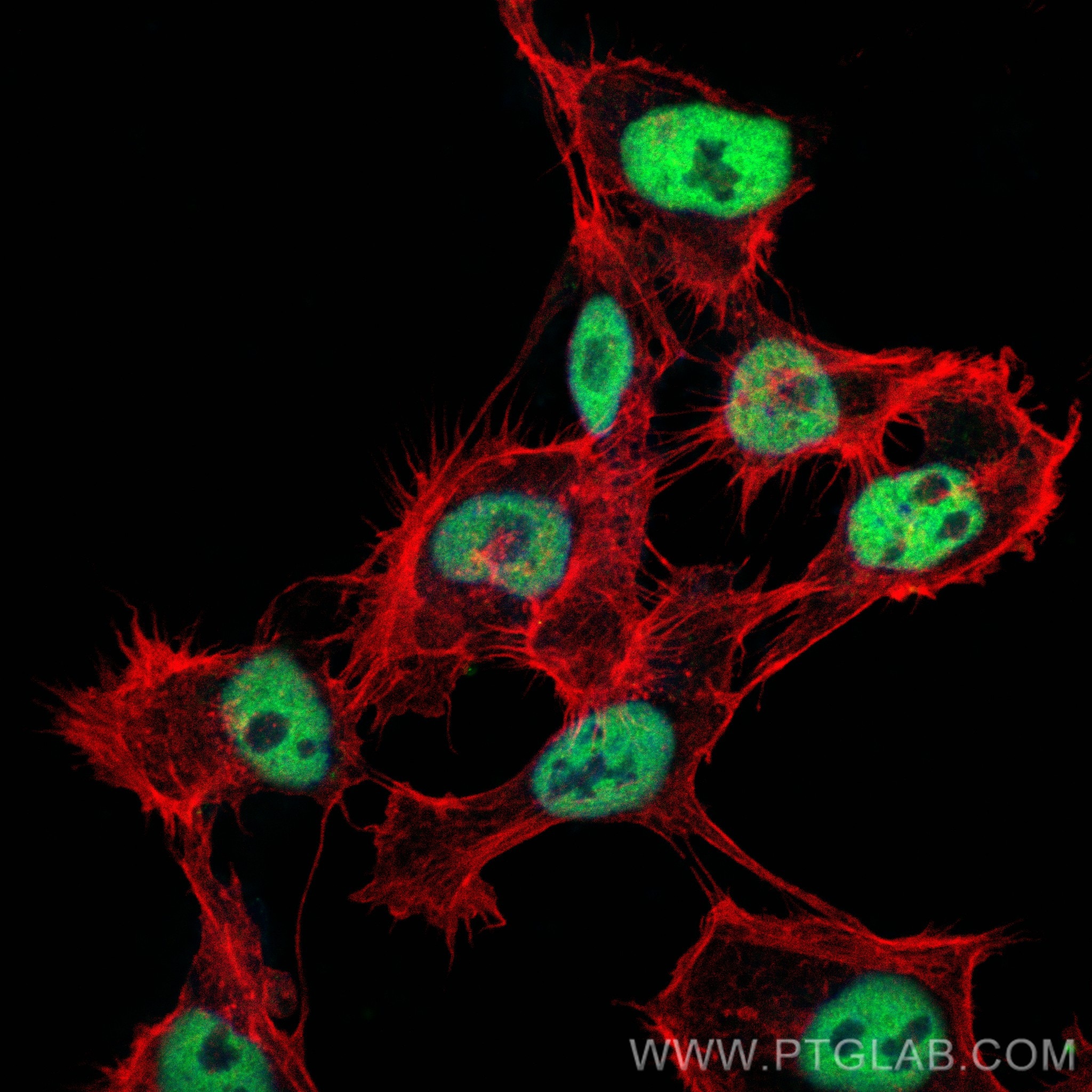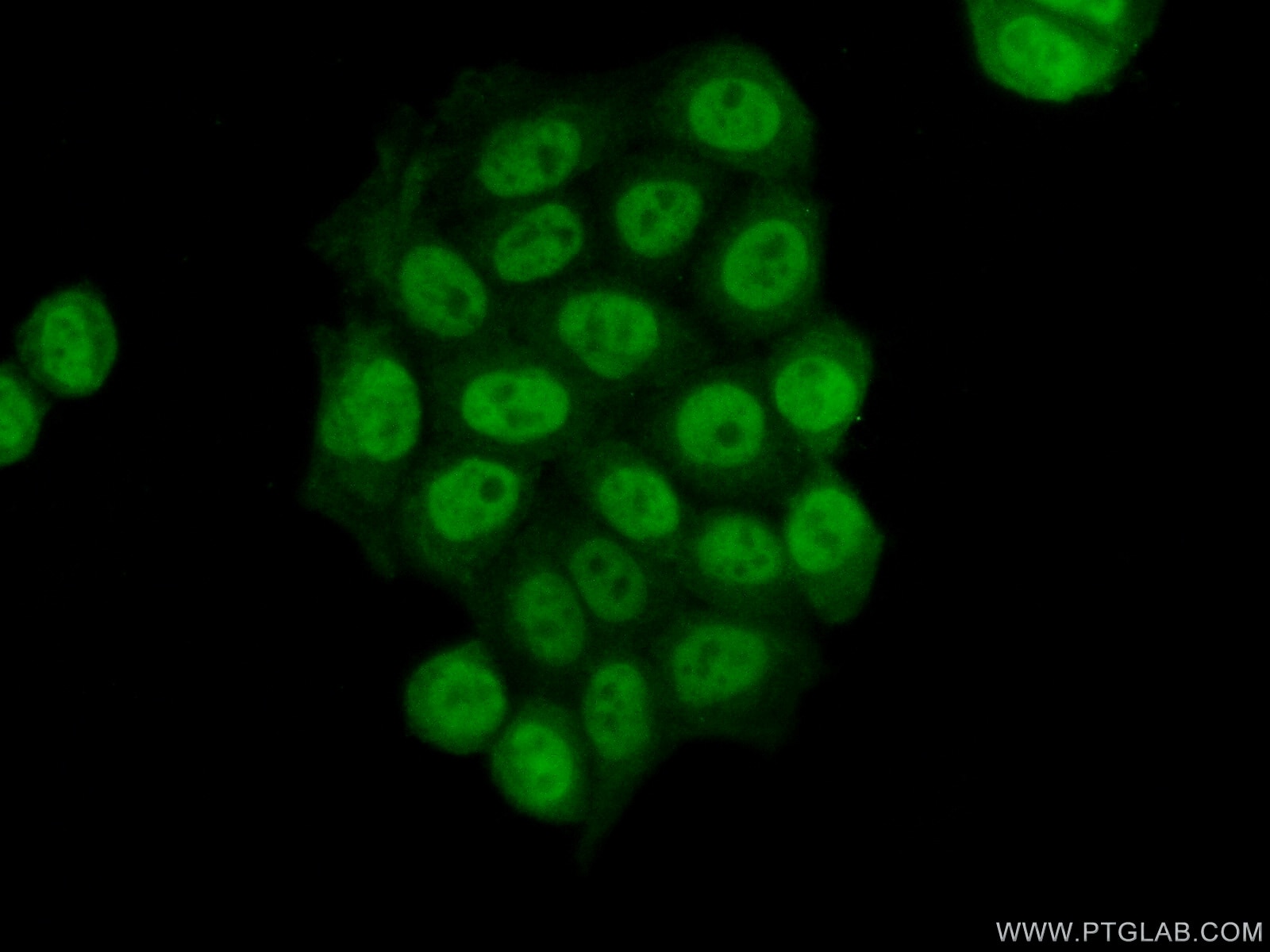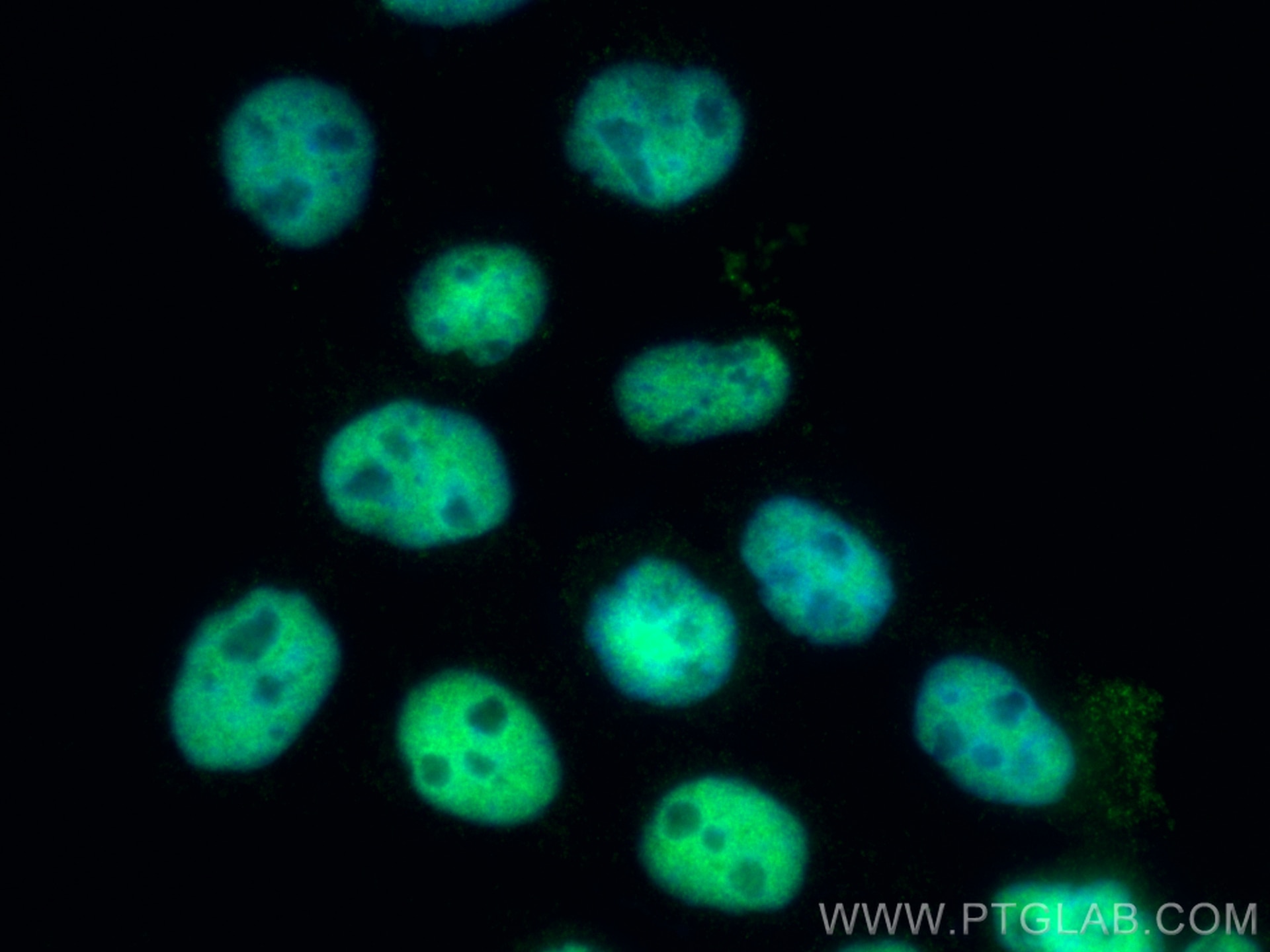Anticorps Monoclonal anti-HDAC1
HDAC1 Monoclonal Antibody for IF, IHC, WB, ELISA
Hôte / Isotype
Mouse / IgG1
Réactivité testée
Humain, rat, souris
Applications
WB, IHC, IF, ChIP, ELISA
Conjugaison
Non conjugué
CloneNo.
4C4G7
N° de cat : 66085-1-Ig
Synonymes
Galerie de données de validation
Applications testées
| Résultats positifs en WB | cellules LNCaP, cellules 4T1, cellules HEK-293, cellules HeLa, cellules HepG2, cellules HSC-T6, cellules Jurkat, cellules K-562, cellules NIH/3T3 |
| Résultats positifs en IHC | tissu de lymphome humain, tissu de cancer de la prostate humain, tissu de cancer du poumon humain il est suggéré de démasquer l'antigène avec un tampon de TE buffer pH 9.0; (*) À défaut, 'le démasquage de l'antigène peut être 'effectué avec un tampon citrate pH 6,0. |
| Résultats positifs en IF | cellules A431, cellules HeLa |
Dilution recommandée
| Application | Dilution |
|---|---|
| Western Blot (WB) | WB : 1:5000-1:50000 |
| Immunohistochimie (IHC) | IHC : 1:2000-1:10000 |
| Immunofluorescence (IF) | IF : 1:6000-1:24000 |
| It is recommended that this reagent should be titrated in each testing system to obtain optimal results. | |
| Sample-dependent, check data in validation data gallery | |
Applications publiées
| KD/KO | See 1 publications below |
| WB | See 10 publications below |
| IHC | See 2 publications below |
| ChIP | See 1 publications below |
Informations sur le produit
66085-1-Ig cible HDAC1 dans les applications de WB, IHC, IF, ChIP, ELISA et montre une réactivité avec des échantillons Humain, rat, souris
| Réactivité | Humain, rat, souris |
| Réactivité citée | Humain, souris |
| Hôte / Isotype | Mouse / IgG1 |
| Clonalité | Monoclonal |
| Type | Anticorps |
| Immunogène | HDAC1 Protéine recombinante Ag19128 |
| Nom complet | histone deacetylase 1 |
| Masse moléculaire calculée | 55 kDa |
| Poids moléculaire observé | 65 kDa |
| Numéro d’acquisition GenBank | BC000301 |
| Symbole du gène | HDAC1 |
| Identification du gène (NCBI) | 3065 |
| Conjugaison | Non conjugué |
| Forme | Liquide |
| Méthode de purification | Purification par protéine A |
| Tampon de stockage | PBS avec azoture de sodium à 0,02 % et glycérol à 50 % pH 7,3 |
| Conditions de stockage | Stocker à -20°C. Stable pendant un an après l'expédition. L'aliquotage n'est pas nécessaire pour le stockage à -20oC Les 20ul contiennent 0,1% de BSA. |
Informations générales
Histone deacetylases(HDAC) are a class of enzymes that remove the acetyl groups from the lysine residues leading to the formation of a condensed and transcriptionally silenced chromatin. The protein encoded by this gene belongs to the histone deacetylase/acuc/apha family and is a component of the histone deacetylase complex, which is responsible for gene expression silencing. It also plays an important role in the control of cell proliferation and differentiation by interacting with RB, p53 and other transcription factors. At least 4 classes of HDAC were identified. As a class I HDAC, HDAC 1 was primarily found in the nucleus. This antibody is raised against residues near the C terminus of human HDAC1. The calculated molecular weight of HDAC1 is 55 kDa, but modified HDAC1 is about 60-65 kDa .
Protocole
| Product Specific Protocols | |
|---|---|
| WB protocol for HDAC1 antibody 66085-1-Ig | Download protocol |
| IHC protocol for HDAC1 antibody 66085-1-Ig | Download protocol |
| IF protocol for HDAC1 antibody 66085-1-Ig | Download protocol |
| Standard Protocols | |
|---|---|
| Click here to view our Standard Protocols |
Publications
| Species | Application | Title |
|---|---|---|
Immunity Histone Deacetylases 1 and 2 Regulate Microglia Function during Development, Homeostasis, and Neurodegeneration in a Context-Dependent Manner. | ||
J Clin Invest The FOXN3-NEAT1-SIN3A repressor complex promotes progression of hormonally responsive breast cancer. | ||
Nat Commun ZNF516 suppresses EGFR by targeting the CtBP/LSD1/CoREST complex to chromatin. | ||
Br J Pharmacol Physalin B attenuates liver fibrosis via suppressing LAP2α-HDAC1-mediated deacetylation of the transcription factor GLI1 and hepatic stellate cell activation. | ||
Front Cell Dev Biol LncRNA NORAD Promotes Vascular Endothelial Cell Injury and Atherosclerosis Through Suppressing VEGF Gene Transcription via Enhancing H3K9 Deacetylation by Recruiting HDAC6. | ||
Molecules Anti-Colorectal Cancer Activity of Solasonin from Solanum nigrum L. via Histone Deacetylases-Mediated p53 Acetylation Pathway |
Avis
The reviews below have been submitted by verified Proteintech customers who received an incentive forproviding their feedback.
FH Xiaoyu (Verified Customer) (06-28-2023) | Excellent antibody for WB
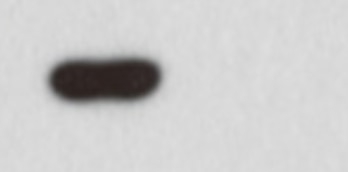 |
FH Andrea (Verified Customer) (01-11-2023) | Excellent antibody
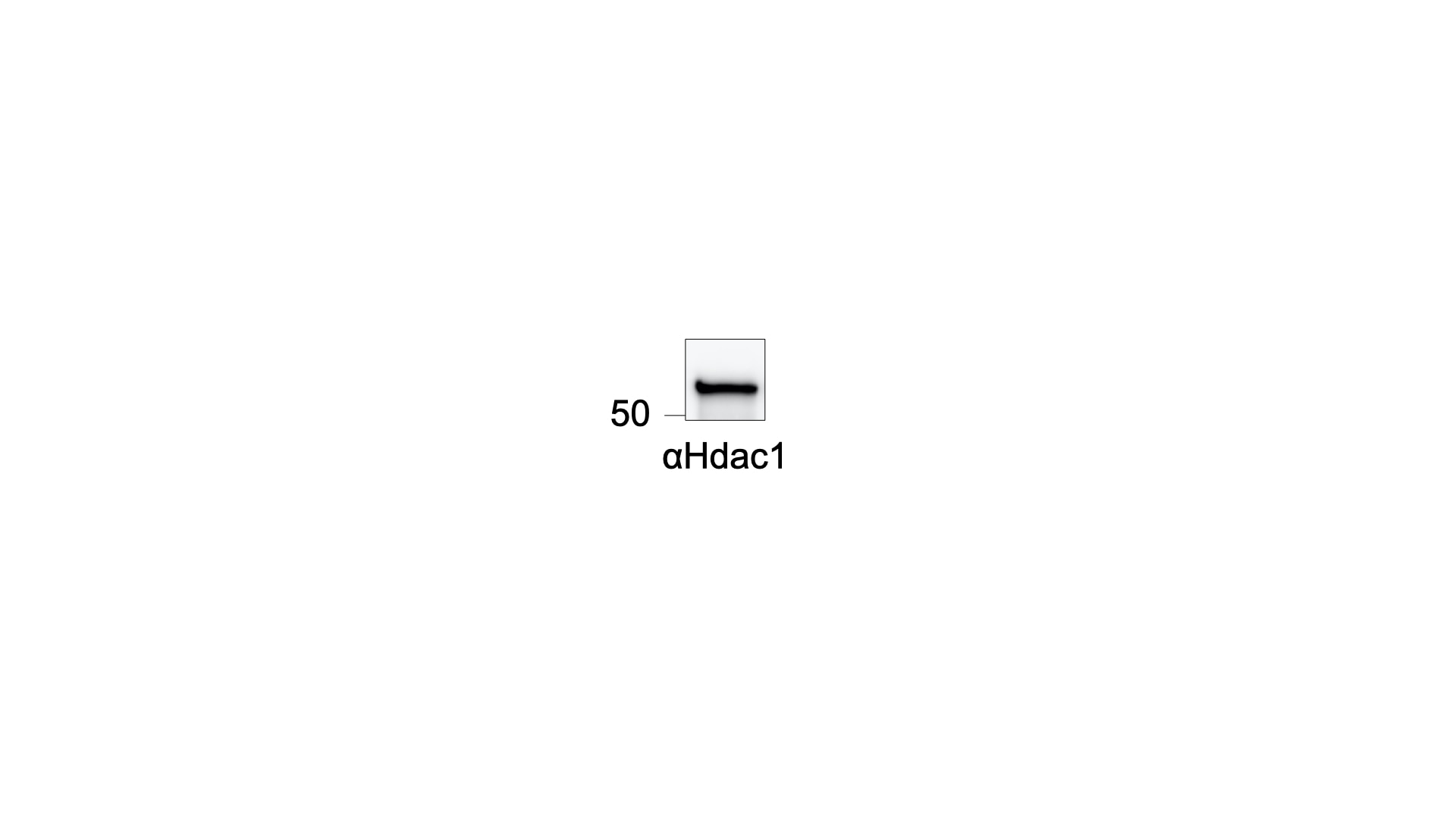 |
